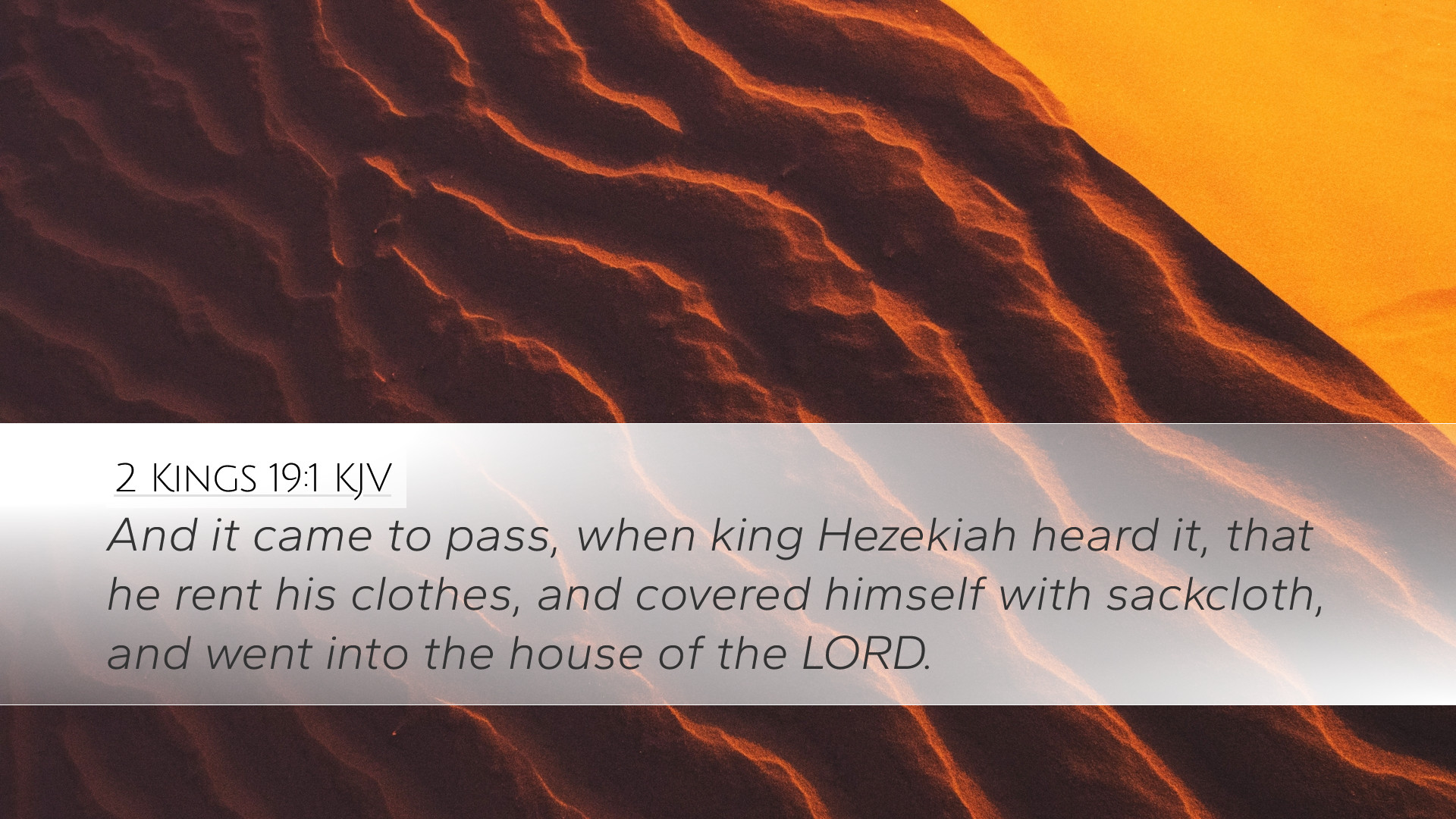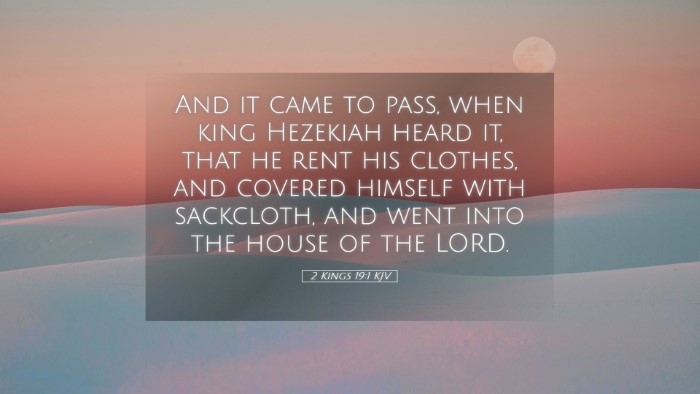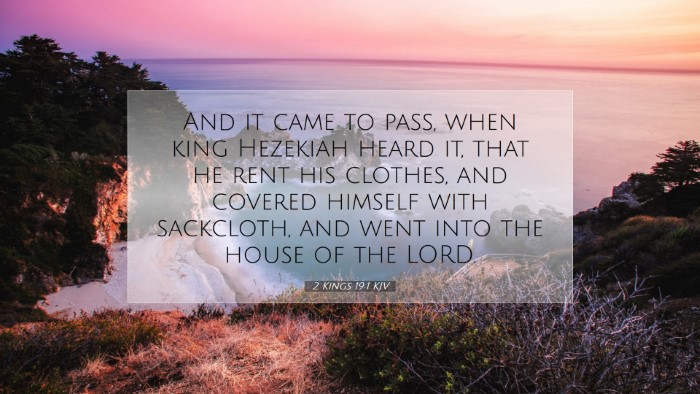Commentary on 2 Kings 19:1
In 2 Kings 19:1, we witness a significant moment in the life of King Hezekiah, as he grapples with the overwhelming threat posed by the Assyrian king, Sennacherib. This verse sets the stage for a powerful demonstration of faith and divine intervention. Below, we explore key insights from various public domain commentaries including those by Matthew Henry, Albert Barnes, and Adam Clarke, consolidating their teachings for pastors, students, theologians, and Bible scholars.
Contextual Overview
The historical backdrop of this passage is crucial for understanding its depth. Sennacherib, king of Assyria, had launched a campaign against Judah, boasting of his military prowess and mocking the God of Israel. The outcome of this tension is pivotal not just for Hezekiah, but for the entire nation of Judah.
Analysis of 2 Kings 19:1
2 Kings 19:1 states:
“And it came to pass, when King Hezekiah heard it, that he rent his clothes, and covered himself with sackcloth, and went into the house of the Lord.”
Hezekiah's Response
Hezekiah’s immediate reaction to the news of the Assyrian threat is a multi-faceted response of grief, humility, and urgency:
- Renting of Clothes: This action symbolizes deep distress and mourning, following the cultural practices of ancient Israel (Matthew Henry). It reflects Hezekiah's recognition of the gravity of the situation, as well as his understanding of the seriousness of sin and the need for divine intervention.
- Covering with Sackcloth: Sackcloth, often made from coarse material, serves as an outward sign of repentance and lamentation (Albert Barnes). This act illustrates Hezekiah’s humility before God, acknowledging that the nation’s sins play a role in their dire circumstances.
- Entering the House of the Lord: In seeking God’s presence, Hezekiah demonstrates faith and the belief in the power of prayer. Matthew Henry notes that true humility leads us to seek God earnestly in our troubles.
Examination of Themes
This verse encapsulates several key themes that deserve exploration:
- Faith in Crisis: Hezekiah's actions display a profound faith amid crisis. He exemplifies the belief that, despite dire circumstances, turning to God is the first and foremost response (Adam Clarke). This is a model for believers facing their own trials.
- Repentance and Sorrow: The symbols of tearing his garments and sackcloth convey the necessity of repentance, aligning with scriptural principles that God often hears the prayers of the humble and contrite (Isaiah 66:2).
- The Importance of Prayer: Hezekiah’s journey to the temple stresses the importance of corporate worship and intercession, emphasizing that national crises require collective prayer and reliance on divine assistance (Albert Barnes).
Theological Implications
The implications of this verse extend to theology, particularly in the areas of suffering, divine sovereignty, and human agency:
- Divine Sovereignty: Hezekiah’s actions suggest that he acknowledges God's sovereignty over nations and their rulers. The belief that God could intervene and save His people is foundational to the biblical narrative.
- The Nature of God’s Response: The ensuing verses (2 Kings 19:15-34) elucidate how God responds to Hezekiah’s petitions, providing assurance of divine protection and deliverance from the Assyrian threat.
- Human Responsibility: While God is sovereign, the passage also alludes to the importance of human responsibility. Hezekiah’s actions are a reminder that believers must take initiative in faith through prayer and repentance.
Practical Applications
For contemporary understanding and application, Hezekiah’s response in 2 Kings 19:1 offers several insights:
- Modeling Faith under Pressure: In moments of fear or crisis, believers are encouraged to respond in faith through prayer, reflecting Hezekiah’s model in their own lives.
- Embracing Repentance: The act of repentance is not merely a ritual but a heartfelt return to God, acknowledging previous shortcomings and seeking restoration.
- Community and Worship: The importance of entering into the presence of God should also include community worship and intercession, fostering unity among believers.
Conclusion
2 Kings 19:1 serves as a powerful account of leadership, faith, and reliance upon God in the face of adversity. Hezekiah’s response encourages believers not only to confront their own trials but to lean into the presence of God with humility and earnestness, knowing that true deliverance comes from Him. By understanding the theological and practical implications of this verse, pastors, students, theologians, and Bible scholars alike can gain deeper insights into the nature of God and the expected response of His people in times of trouble.


